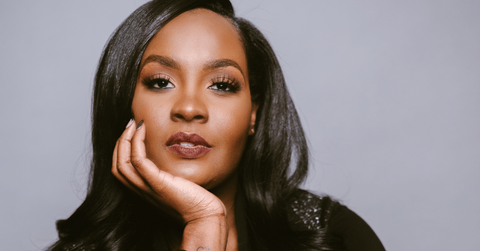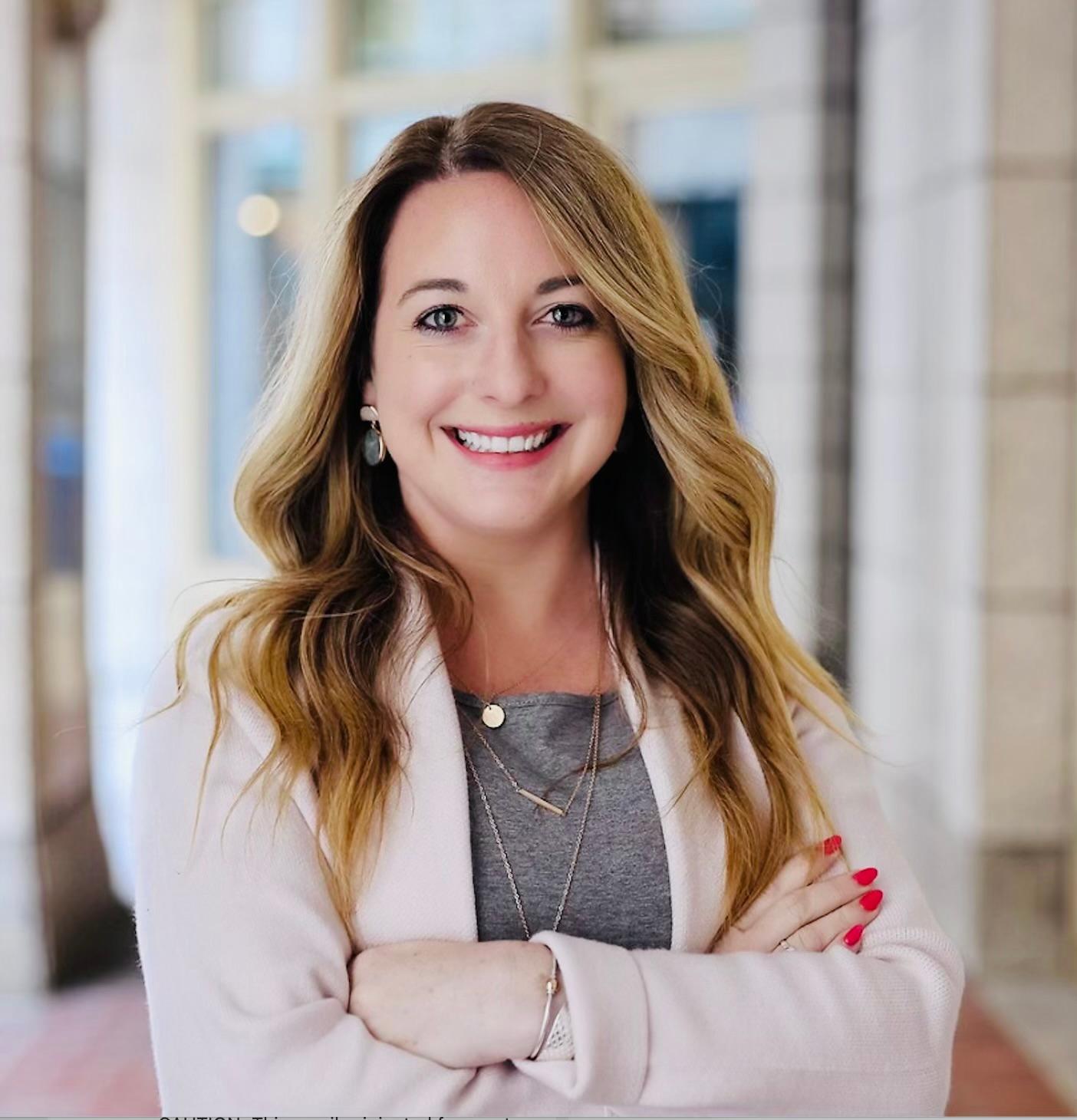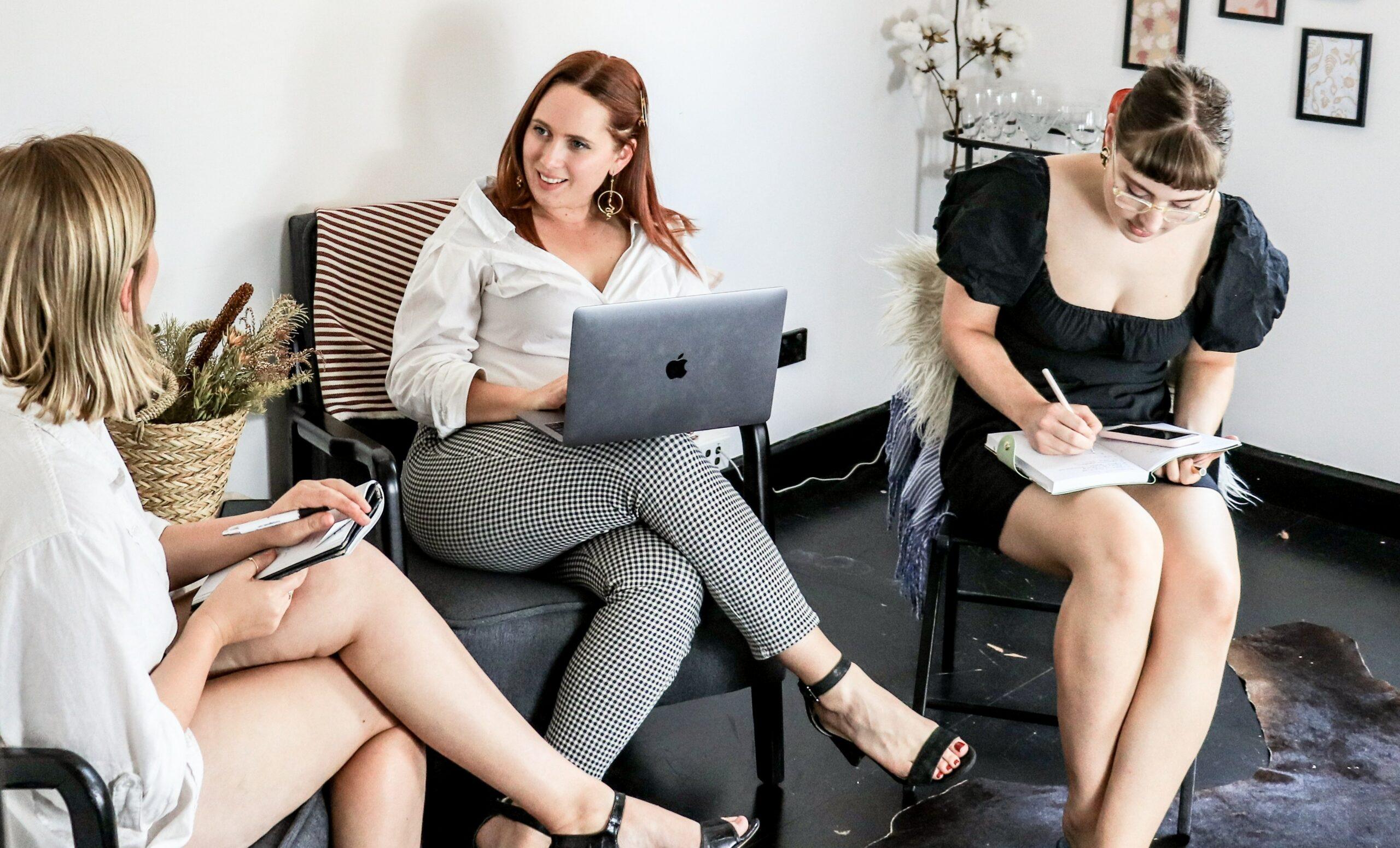From a young age, Isa Watson had an uncanny ability to make something out of nothing. The daughter of an engineer who would buy her computer parts at age 7 instead of buying her a new computer, she got her first job at 14 years old as an organic chemistry researcher at UNC Chapel Hill. While she found the world of research interesting, she quickly realized she wanted to be closer to the impact of her work, so she switched gears and studied economics at MIT. Isa says she “accidentally” ended up on Wall Street working for JP Morgan Chase, where she led large strategic initiatives across multiple businesses in New York and Hong Kong, creating upwards of $5 billion in enterprise value for the initiatives that she led.
As someone who had received awards and accolades for her work for most of her life, Isa received a lot of validation from social media, where her achievements could be seen by anyone who followed her. The concept of creating a “personal brand” was really taking off on social media and Isa felt the pressure to keep up.
Every year, Isa’s parents led a bus trip for students to visit Hampton University, and while she was working at JP Morgan Chase the bus ran off the road and her father did not survive. It was this tragedy, and the loneliness and grief that followed, that inspired Isa to take a step back and consider whether she’d been neglecting to create meaningful personal connections in her life outside of social media.
Isa’s book, Life Beyond Likes: Logging Off Your Screen and Into Your Life, explores what it’s like to live an authentic life both online and in the real world. Her app, Squad, is an audio-based social app that helps users deepen their relationship with their existing circle of close friends with a news feed of voice message updates that expire after 24 hours.
We sat down with Isa to discuss the impact of social media on mental health, and steps to protect yourself from burnout.
Her Agenda: What was your relationship with social media like before your father passed?
Isa Watson: I woke up one day and I remember looking at my Instagram and scrolling through it and I was like, ‘Wow, I do not recognize myself. I do not like that girl. That is not me.’
Then I became a tech entrepreneur and [I posted my work online and got validation for that as well.] But the reality is that when I would post about going on a fishing trip or a ski trip for the weekend, those posts didn’t receive as much engagement. It’s like social media says we’re only going to validate a fraction of the person you are. So I found that I would minimize other components of my life and double down on what people were validating on social media.
The second thing is something I’ve talked about in my book, ‘Life Beyond Likes’ is the validation that we get from likes. I found that I was kind of feeding that as opposed to actually just genuinely living my life. When I thought about it, it made me realize I’m doing it for things that are external to me, and that is not the person I want to be in this world. I think that my relationship with social media at that point was one that was very shallow and one that just wasn’t reflective of who I wanted it to be in the world.
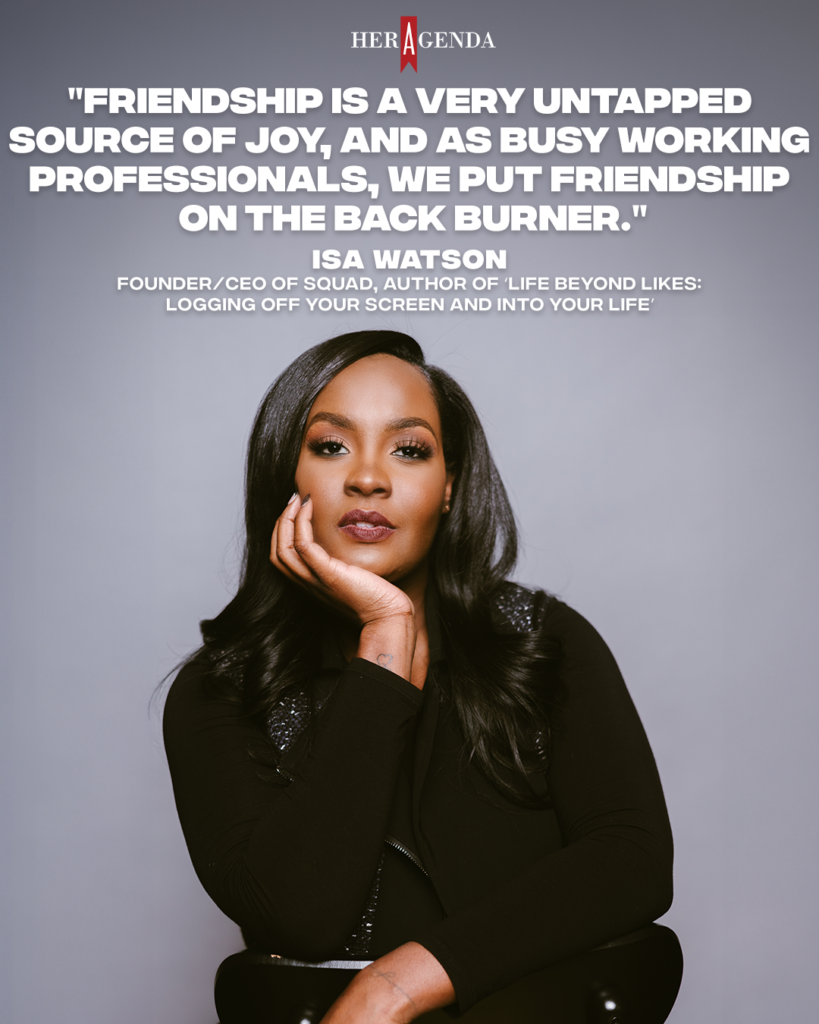
Her Agenda: Once your father passed, you went through a sort of reckoning with your relationship with social media. Walk us through your journey of figuring out how to change that.
Isa Watson: It was a lot of stop-and-go until I could really just get to figure out what I wanted. Perhaps one of the most influential conversations I had was with my best friend from college who is a dentist in Houston and we talk every day. She said to me, ‘you know, if someone were to look at your social media, they would just assume that your life is perfect and that you have no issues.’ I was like, ‘Girl I have all the issues, what do you mean?’ And she said, ‘No, that’s what you cut out.’ If my best friend and the people closest to me thought my social media was full of sh*t, that’s when I knew I really needed to re-evaluate myself.
During the pandemic, I actually deleted my Instagram account for two years as a way to step back. I realized I wasn’t happy on social media. The whole notion of following somebody else’s life who I don’t know so closely wasn’t making me happy. I realized I was just consuming people’s perfect highlight reels, which wasn’t making me feel good about myself. Squad happened in the middle of this. It’s been kind of a parallel growth journey that’s had lots of twists and turns and stops and starts. But I think that’s the beauty of the journey.
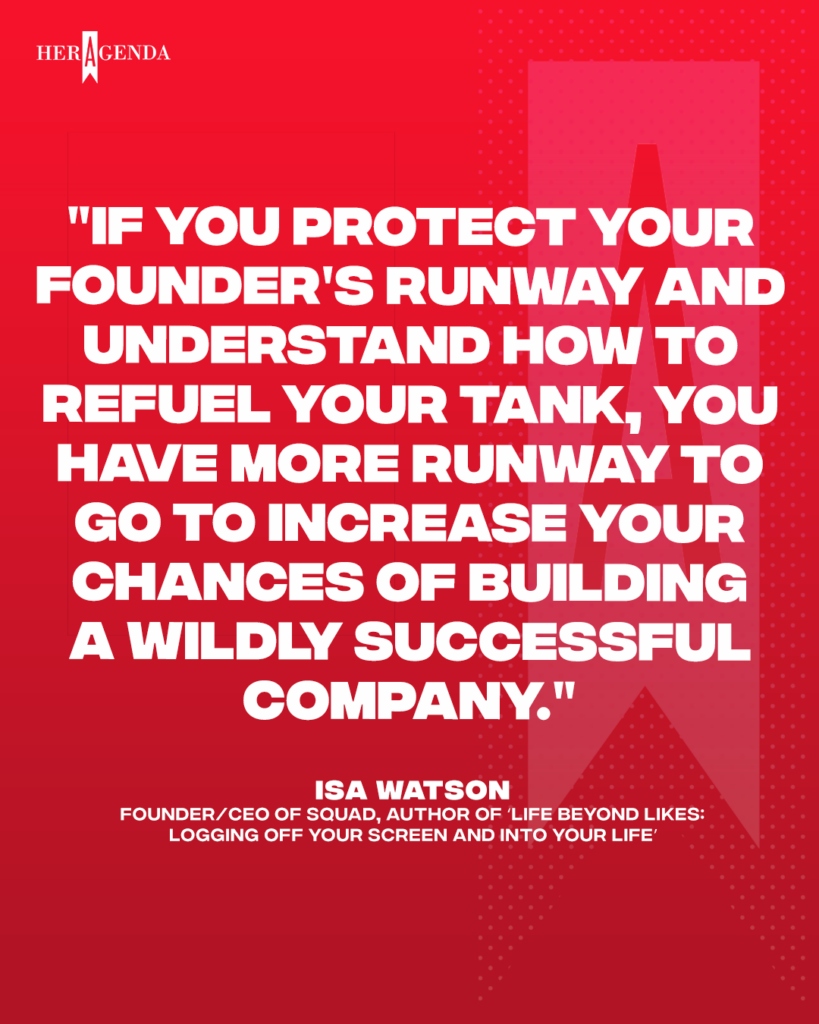
Her Agenda: What was the process of launching Squad like?
Isa Watson: The first kind of iteration of Squad was always all about communities, always all about connections. The idea was initially, ‘Hey, you’re sad, you’re lonely. It’s Friday night in New York City and you’re scrolling your phone, as opposed to going out and connecting with friends.’ It was designed as an app that makes it easy for you to do things together with people in your city. More than 10,000 people in New York had that version of Squad, then Covid hit and we switched to doing virtual events with video and virtual events with just audio.
We could see the signup list for the different events, which ranged from a pottery-making session in New York all the way to a discussion on Game of Thrones, and the unique insight that we found was that our users were choosing events, by and large, with people they had already been to events with. They were more interested in deepening the relationships that they had, as opposed to going to a new event where they didn’t know anyone.
I thought that was quite interesting because social media leads us to believe that we have a thousand friends. The human capacity for meaningful relationships is 150, but with really good friends, it’s about 10.
With that data, we restructured Squad to be a small world, so you can have up to 12 people in your Squad. We don’t lead by saying we’re audio only, and we’ll continue to experiment and add other mediums like video, but audio is the easiest to engage people with and it’s very intimate. You can hear someone’s voice cracking when you’re talking to them. So that was the transition during Covid.
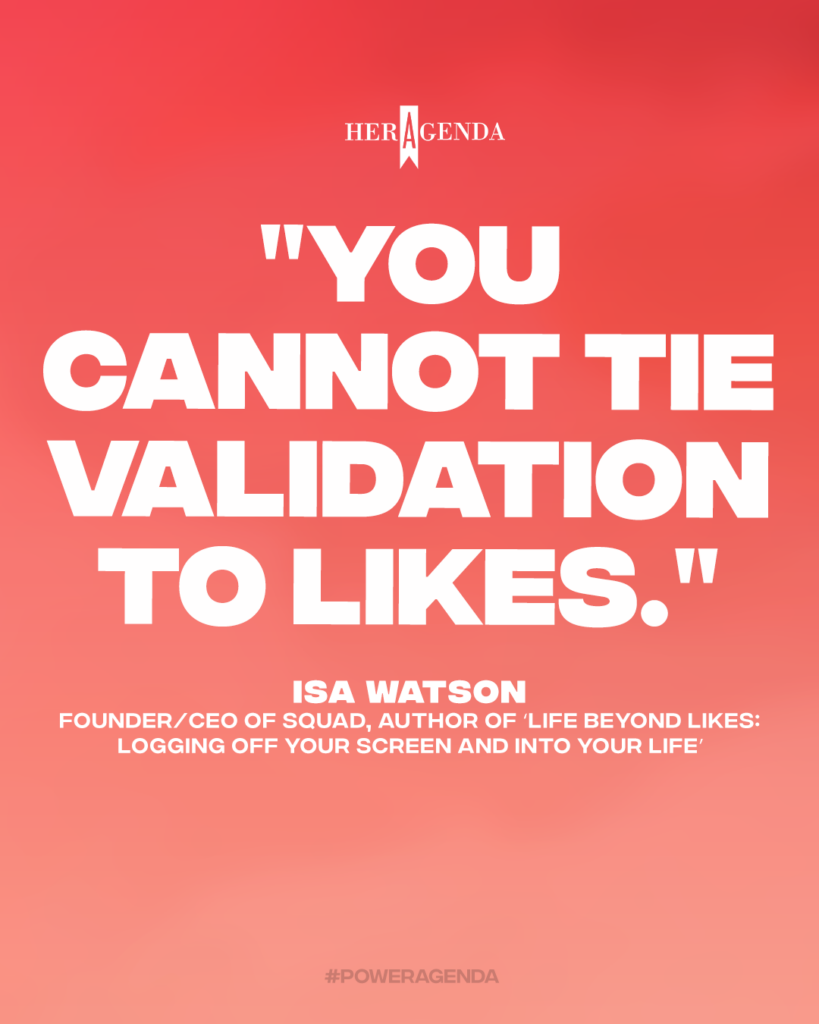
Her Agenda: What were some of the biggest surprises or takeaways from creating Squad?
Isa Watson: Some of the surprises included just how much, in just half a generation or less, people’s habits could change dramatically. I grew up on dial-up internet like we had to ask if anyone was on the phone before we went on the internet. It was a whole different construct. One of the things that I thought was really interesting was the notion of a personal brand. When I was growing up people like Angelina Jolie or Bill Clinton had brands because they were celebrities and highly well-known, but the democratization of it kind of made many pockets of that.
So, one habit that we found was really big and powerful, was anytime someone joins a social app, the first thing that they do is get as many friends and political connections as possible because it shows the world that they’re important. What we realized was that the people who were just kind of ‘join join join join, join’ or ‘add add, add’ were actually the least active. But the people who were the most active were the people who kept it small and intimate.
So when we changed the construct of Squad to allow only up to 12 people, it forced a hard decision immediately: Who do I want to bring in here? Our most active users on Squad have anywhere between four and seven people in their squad – they don’t even hit 12. I think that is actually pretty insightful. People are realizing broadcasting to thousands of people is not where the connection and joy are coming from.
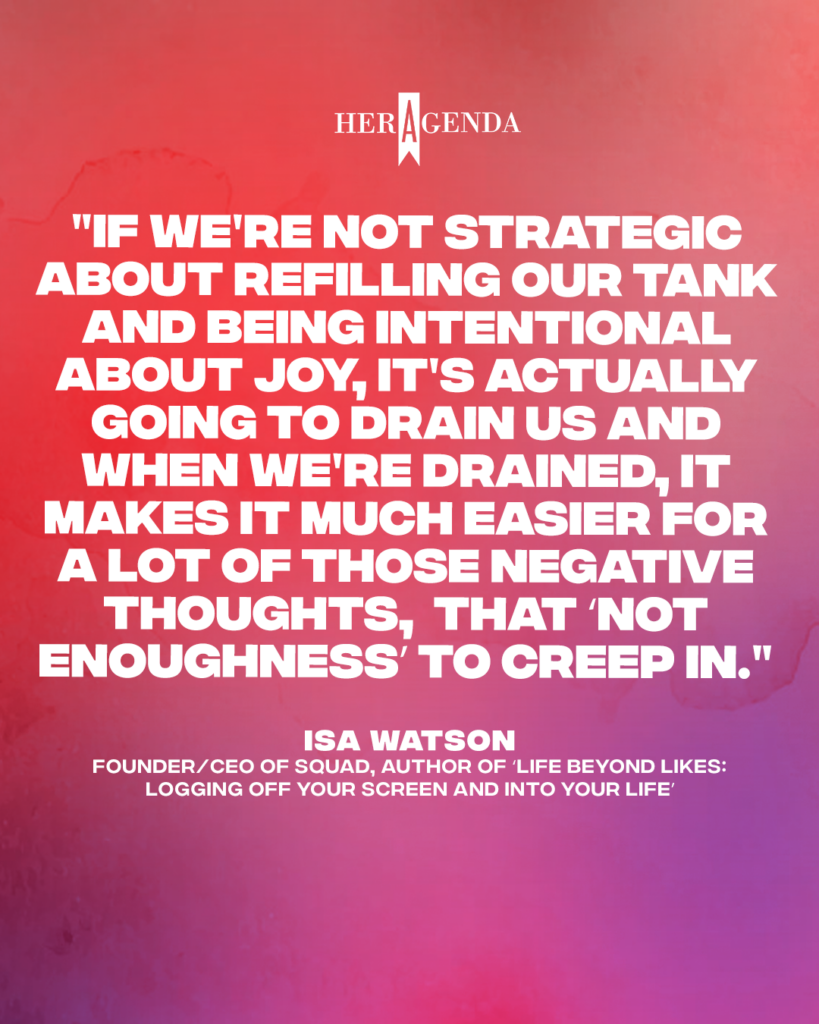
Her Agenda: What challenges did you face as you were working to get support and funding for Squad from Silicon Valley?
Isa Watson: At a very high level, Silicon Valley is a super insular place, so you literally have to be ushered in by the right person. I would go into meetings and explain that I had built $5 billion worth of products, I went to MIT, etc, and they would be like, ‘Well you didn’t graduate from Harvard or Stanford’ or ‘You weren’t one of the first 10 employees at Google.’
It took about 400 meetings before I really got the right conversation in Silicon Valley and that was obviously exhausting, especially when I’m looking at my white male counterparts who went to some okay schools and who could get funding after five conversations.
When I talked about Squad, they couldn’t wrap their heads around the fact that I was building a social tool to positively impact the lives of as many millions of people as possible. As a Black person, we always hear you have to work twice as hard for half as much. But anytime I got to an accelerator or anytime I got funding at a certain stage, I was further ahead than my peers by far, but I still wasn’t getting great terms. So there’s absolutely a lot of systemic weirdness in Silicon Valley.
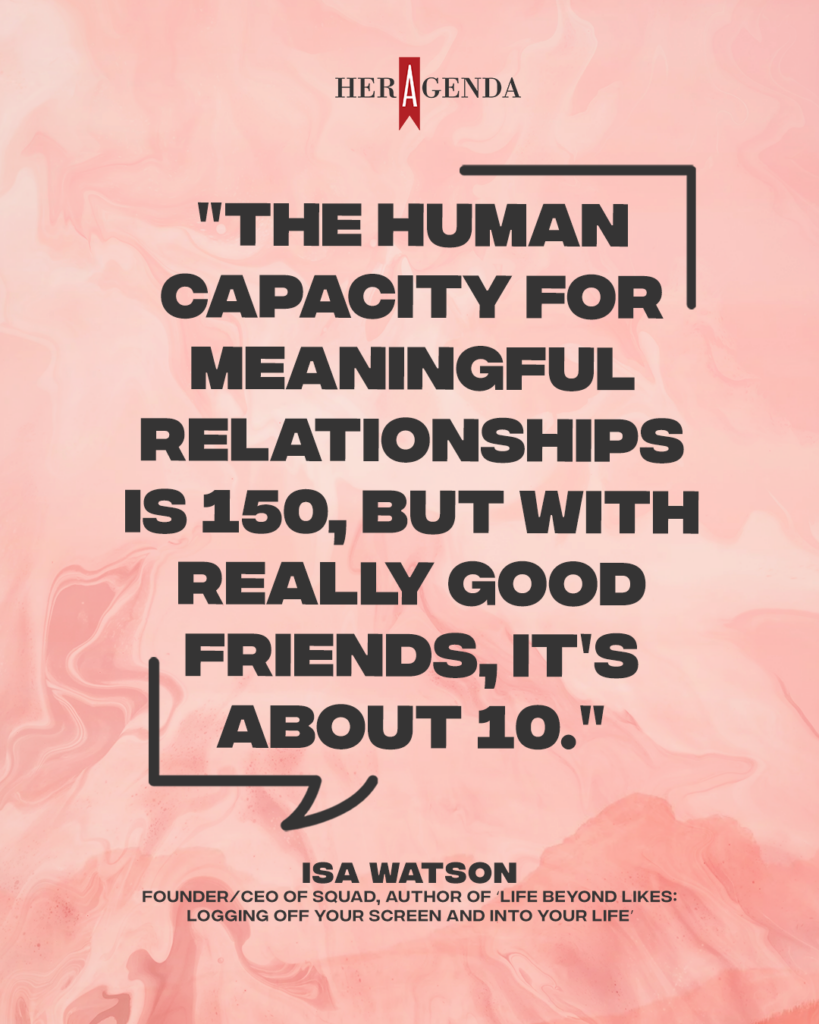
Her Agenda: What advice would you give to someone who is interested in entrepreneurship?
Isa Watson: First,I would say to cultivate the village around you. I think that people over-index for trying to meet the super successful Silicon Valley dudes and trying to penetrate that, but the reality is that the village around any successful entrepreneur is actually quite broad. So my closest mentors today are some of the most senior women on Wall Street. They sometimes don’t even know what I’m talking about, but they’re smart and they’ve been through things in life so I can have real conversations with them. I think part of my getting depleted so much, and so fast, was the fact that I didn’t know how to refuel myself. I didn’t refuel my tank and I didn’t know how to cultivate some of those relationships.
The second thing is, pretty frankly, entrepreneurship takes a lot of networking, getting to know people, and people getting to know you. At this point in my journey, my reputation precedes me, but I didn’t have parents who were on the boards at Stanford and didn’t vacation in Aspen with Bill Gates and his staff, so I had to create those connections one by one. I think it’s really important to find those tech ecosystems in whatever city you’re in and insert yourself into that.
There was a Deloitte study this year that revealed 77% of Americans and 84% of millennials have experienced burnout in their current job. So we live in a society where running on empty is the norm, but entrepreneurs have to do that. In tech, people ask about your runway, and what they’re asking is what is your cash in the bank? But the runway that kills a company before any other is the founder runway. That is the runway that kills the companies. I’ve seen it over and over again. So if you protect your founder’s runway and understand how to refuel your tank, you have more runway to go to increase your chances of building a wildly successful company.
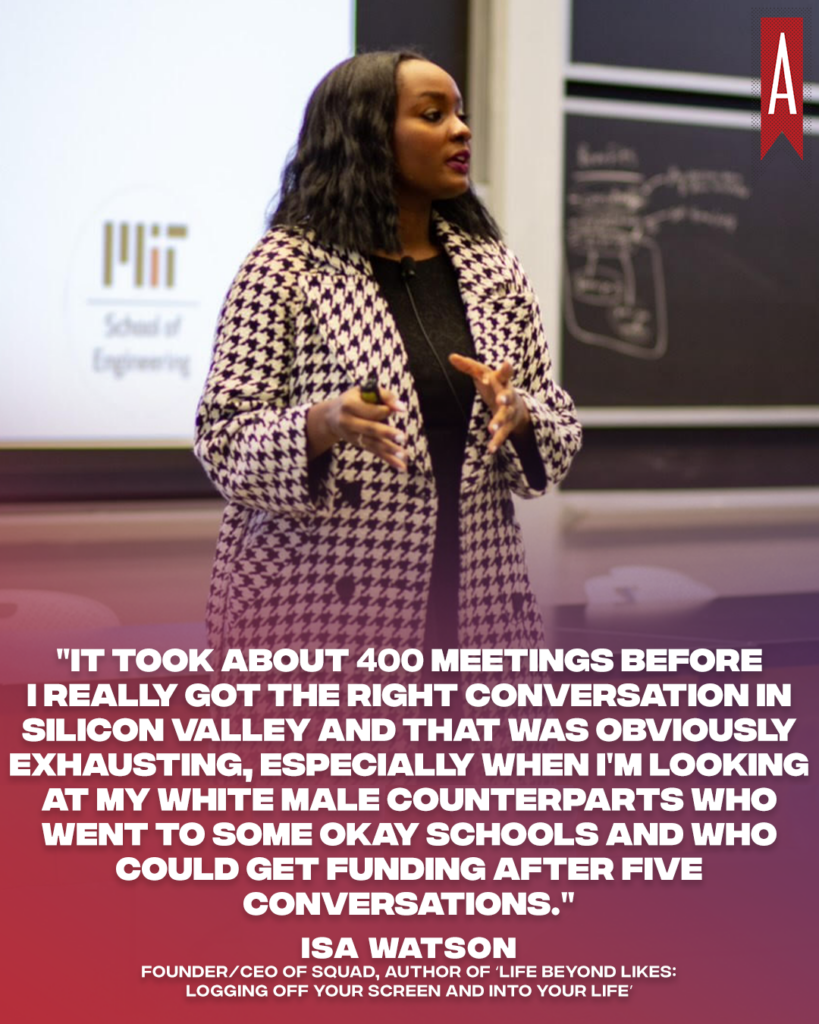
Her Agenda: In thinking about burnout, how can we avoid letting social media negatively affect our lives?
Isa Watson: There are a few things we can do. One is a word I love that I used to feel bad saying: boundaries. I tell people an hour into your day and an hour before you go to bed, no social media because those are our most vulnerable parts of the day.
The second thing is the concept of refilling your tank. We have kind of morphed into this like survivalism where we are moving on “E” in perpetuity, which is not sustainable. Friendship is a very untapped source of joy, and as busy working professionals, we put friendship on the back burner. I tell people to put one day a week on their calendar, and pick a block of time: Thursday night dinners, Saturday morning bunches, that’s friendship time that is blocked out. Then, fill it in every week. Just fill it in. Because the reality is that if we’re not strategic about refilling our tank and being intentional about joy, it’s actually going to drain us and when we’re drained, it makes it much easier for a lot of those negative thoughts, that ‘not enoughness’ to creep in.
The last thing I’ll mention, from a tactical perspective, is to turn off the ‘like’ notifications. The ‘like’ notification is like a dopamine hit. It’s almost like a blood sugar spike. It goes up and it comes down. If we don’t get enough likes, and it’s not coming in with enough velocity, we think that person isn’t performing well. That’s dangerous.
The ‘like’ is the most destructive invention of the modern-day internet because we tie it so much to our validation of ourselves. I actually turned off the ‘like’ notifications for all social media, and then I turned off all notifications for all social media and I’m so much happier. I just post whatever I want and I don’t care because I made a decision that whatever I post it’s because I wanted to post it. And I’m going to detach my self-worth from how many people like it and honestly not everything I post people are going to like and I’m okay with that because I’m okay with myself first because I want to validate myself first. That’s a journey people have to go on and a detachment people have to make. You cannot tie validation to likes.
[Editor’s note: This feature has been edited for length and clarity.]

